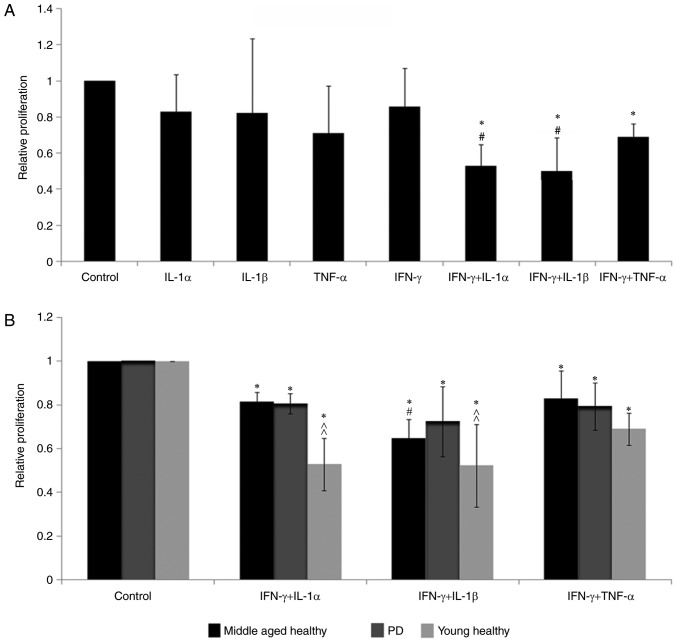Figure 3.
Proinflammatory cytokines are required by BM-MSCs to suppress the proliferation of PBMCs. (A) IL-1α, IL-1β, TNF-α or IFN-γ alone did not induce BM-MSCs to become immunosuppressive. Compared with the cytokine-untreated cells, BM-MSCs treated with the combinations of IFN-γ + IL-1α, IFN-γ + IL-1β and IFN-γ + TNF-α decreased the PBMC proliferation in young individuals significantly (*P<0.05). IFN-γ + IL-1α and IFN-γ + IL-1β were more powerful than IFN-γ + TNF-α in inducing BM-MSCs to suppress the PBMC proliferation in young individuals to lower levels (#P<0.05). (B) Proliferation of PBMCs treated with all three combinations in the young healthy, the middle-aged healthy and the PD groups decreased significantly compared with those in the control group (untreated BM-MSCs with PBMCs; *P<0.05). In the middle-aged healthy group, IFN-γ + IL-1β was more effective than IFN-γ + TNF-α in inducing BM-MSCs to be immunosuppressive (#P<0.05), while IFN-γ + IL-1α and IFN-γ + TNF-α did not show any significant difference. Following the treatment with IFN-γ + IL-1β or IFN-γ + IL-1α, the PBMC proliferation in young healthy subjects was significantly lower than that in the middle-aged healthy and the PD individuals (^^P<0.01). n=6. BM-MSCs, bone marrow-derived mesenchymal stem cells; PBMCs, peripheral blood mononuclear cells; IL, interleukin; TNF-α, tumor necrosis factor-α; IFN-γ, interferon-γ, PD, Parkinson's disease.

